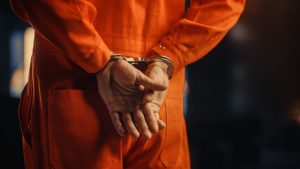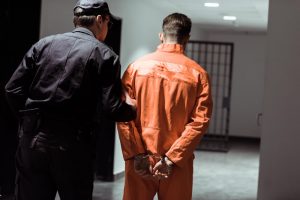Posted on Friday, April 1st, 2022 at 2:07 pm
It could be everyone’s worst nightmare: being convicted of a crime you didn’t commit. Being arrested and tried for a crime someone else committed leaves the defendant angry and confused. Being convicted and sentenced to decades or even life in prison leaves them demanding justice. It is difficult to get them that justice.
Burden of Proof: Whose Job Is It?
In the initial trial, the prosecution on behalf of the state must prove that the defendant committed the crime “beyond a reasonable doubt.” That doesn’t mean there can be no doubt, just that it is unlikely that anyone except the defendant committed the crime.
When you need to prove that you were wrongly convicted, it becomes your job to prove that the prosecution got it wrong.

Eyewitnesses, Snitches, and Bad Science
The Innocence Project of Florida handles more than 1,000 claims of wrongful conviction per year. They have found five key factors that led to wrongful convictions that were later exonerated by DNA evidence.
- Mistaken eyewitness testimony. More than half of all convictions, regardless of the nature of the crime, were achieved at least in part through eyewitness testimony. Eyewitness testimony has been known for decades to be the least reliable evidence, yet nothing sways a jury like a witness pointing dramatically across the room and saying, “That’s him! I saw him!”
- False or coerced confessions. Up to 25 percent of convictions rest on false confessions. The reasons for “false” confessions are numerous, ranging from devious interrogation techniques, mental illness, fear, use of force by the interrogators, and confusion on the part of the subject. Despite Fifth Amendment protections that allow a person not to be a witness against themselves and that prohibit the government from forcing a person to sign a confession document, confessions are routinely used in court as proof of guilt.
- Perjury or false accusation by informants. As many as 50 percent of all murder convictions are obtained using jailhouse snitches. These people may be “incentivized” to testify by exchanging reductions in sentences for their testimony. Although some jailhouse informants are passing along reliable information, others may provide false information or change their stories once their incentive is within their grasp.
- Improper forensic science. This is the second most common factor in wrongful convictions, according to the Innocence Project. Sometimes called the “CSI effect,” jurors love scientists who talk about bite impressions, shoe print inclusions, and other exotic markers. Unfortunately, many of these scientific techniques have been disproven or should only be used to exclude, not include, a subject. Other science of this sort may be presented as evidence before the method of testing has been sufficiently validated, which should invalidate the findings for the purposes of evidence.
- Official misconduct. The misconduct is not always malicious or directed at the defendant personally, but it can be devastating to the defendant’s case. Some types of this misconduct include coercing false confessions; law enforcement failing to turn over exculpatory evidence to prosecutors or prosecutors fail to turn that evidence over to the defense; using suggestion when managing line-ups or other identification procedures; allowing witnesses whose testimony will be false to testify, and making arguments that overstate the actual probative value of some testimony.
If you or a loved one have been the victim of this type of misconduct, proving your case can be difficult but not impossible. You need legal assistance at every level.
When You Need a Lawyer
Proving your innocence is not as easy as calling the Innocence Project of Florida or the national Innocence Project. Those organizations only accept clients who have exhausted their direct appeal process through the state courts.

If you’re still working through the appellate process, or you haven’t started yet, that’s when you need us. Filing your own appeals is never a good idea. The deadlines are strict, and the responses are complicated. More than that, you need to start developing a record for your wrongful conviction case.
This will be different from your appeal. Instead of focusing on the errors of law in the first trial, you’ll need to find the mistakes in your interrogation, points at which the prosecutor knew of misapplied science, or investigate to discover whether an informant was given information only the perpetrator should have known by the police.
Contact Us
If you need to prove that you or a loved one were wrongfully convicted, call the aggressive Pensacola criminal defense attorneys of The Morris Firm at (850) 503-2626 right away. The process may take time, so we should start immediately. Let us work to get you the justice you were denied in your trial.
